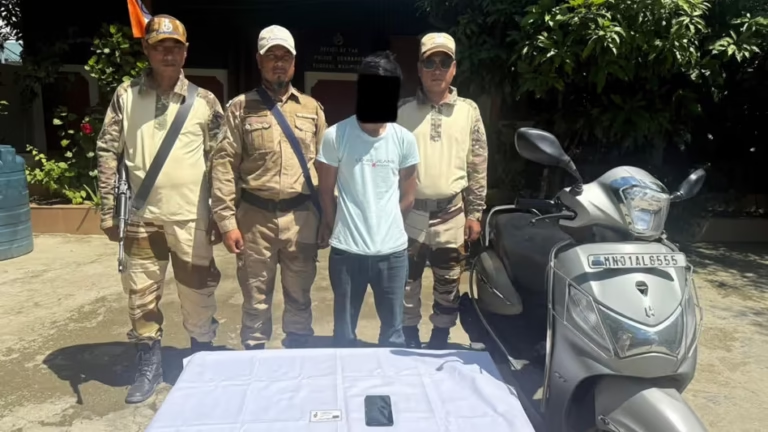Mizoram MP Urges Centre to Facilitate Dialogue for Peace in Manipur’s Ethnic Crisis
Summary
Mizoram MP C. Lalrosanga recently urged the Central Government to prioritize dialogue and reconciliation to address the ongoing ethnic violence in Manipur. In his statement, he emphasized that sustainable peace can only be achieved through inclusive discussions between all involved parties. Lalrosanga’s appeal reflects growing concerns over the prolonged unrest in Manipur, which has displaced thousands and created a humanitarian crisis in the region.
A Deep Dive into the Ethnic Unrest in Manipur
Understanding the Crisis: What Went Wrong?
Manipur, nestled in India’s northeast, has long been a cultural mosaic of ethnic communities. However, this diversity has also been a source of tension. The current violence stems from a decades-old conflict between the Meitei and Kuki communities, primarily over land rights, political representation, and identity. Recent incidents have reignited these tensions, escalating into widespread violence.
Mizoram’s Stance: A Call for Dialogue
C. Lalrosanga, a Member of Parliament from Mizoram, has called upon the Central Government to act as a mediator in resolving the crisis. According to him, the prolonged unrest not only destabilizes Manipur but also impacts neighboring states like Mizoram, which have seen an influx of refugees.
Lalrosanga highlighted the importance of engaging all stakeholders, including civil society, community leaders, and government representatives, to find a lasting solution. He stressed that sidelining any group could lead to further alienation and conflict.
Why Dialogue is the Need of the Hour
The ethnic violence in Manipur has left thousands homeless, with entire villages burnt down. In such a volatile scenario, dialogue becomes a bridge to understanding, fostering mutual respect and coexistence. Lalrosanga’s emphasis on negotiation underscores its importance in rebuilding trust and addressing the root causes of the crisis.
Challenges to Peace Talks
While dialogue is essential, achieving consensus among deeply polarized communities is easier said than done. Key obstacles include:
- Mistrust Among Communities: Years of conflict have deepened mistrust between the Meiteis and Kukis.
- Political Interference: Local and national political agendas often exacerbate ethnic divisions.
- Humanitarian Concerns: Refugees and displaced individuals need immediate relief, which can overshadow long-term peace-building efforts.
The Role of the Central Government
The Central Government holds the reins in ensuring peace and stability in Manipur. However, critics argue that its efforts have been lackluster, focusing more on temporary ceasefires rather than sustainable solutions. Lalrosanga’s plea comes as a reminder that the Centre must actively engage in fostering dialogue, providing resources, and ensuring transparency.
Impact on Neighboring States
The crisis in Manipur has created ripple effects across the northeast. Mizoram, in particular, has become a haven for refugees, further straining its resources. This humanitarian dimension adds urgency to Lalrosanga’s call for action, as unresolved conflicts could destabilize the entire region.
A Path Forward: Building Bridges
Community Reconciliation Initiatives
Grassroots efforts, like community meetings and peacebuilding workshops, could play a significant role in healing divides. These initiatives can foster empathy and understanding, making larger dialogues more effective.
The Role of Civil Society
NGOs and local organizations can act as mediators, ensuring that marginalized voices are heard. Their involvement can help bridge the gap between the government and ethnic communities.
Long-Term Policy Measures
The government must address structural issues like land rights, political representation, and economic development to prevent future conflicts. Inclusive policies that benefit all communities are key to lasting peace.
FAQs
1. What is the main cause of the ethnic violence in Manipur?
The violence stems from disputes over land rights, political representation, and ethnic identity between the Meitei and Kuki communities.
2. How has the crisis impacted Mizoram?
Mizoram has witnessed an influx of refugees, straining its resources and highlighting the regional impact of the Manipur crisis.
3. Why is dialogue important for resolving the crisis?
Dialogue fosters mutual understanding, rebuilds trust, and addresses the root causes of the conflict, paving the way for sustainable peace.
4. What role does the Central Government play in this issue?
The Centre acts as a mediator, providing resources and creating platforms for dialogue among all stakeholders.
5. How can grassroots efforts contribute to peace?
Grassroots initiatives promote empathy and understanding at the community level, making larger peace talks more effective.

